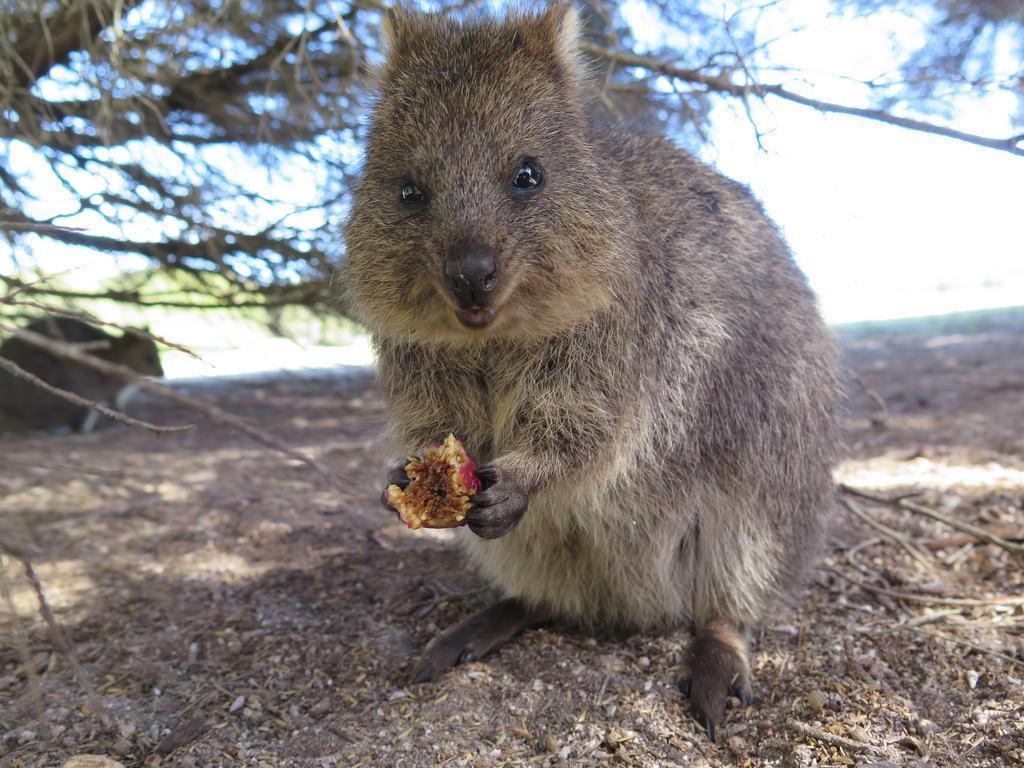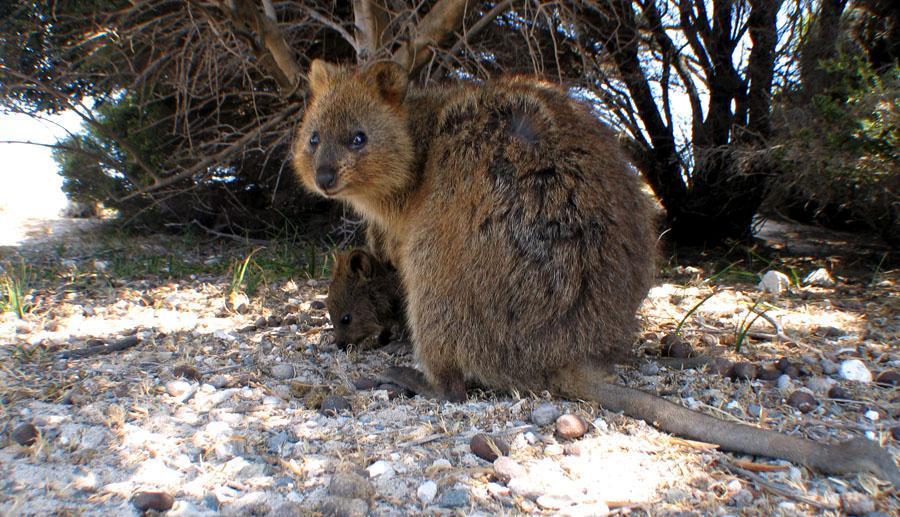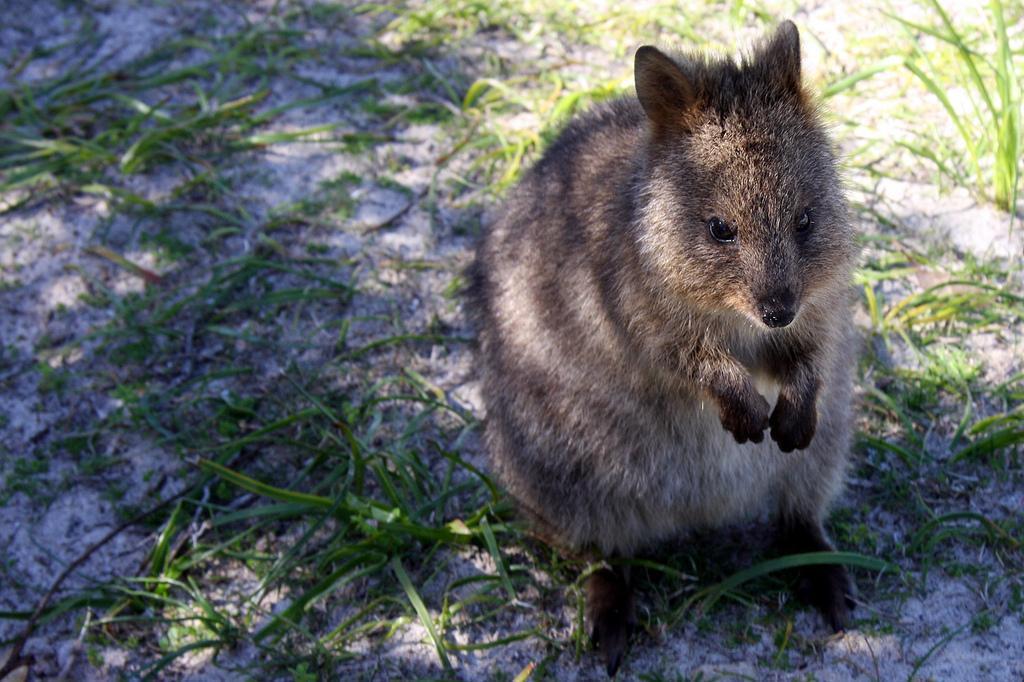What Are Quokkas? - Meet the Happiest Animal in the World


You may already be familiar with this adorable creature, or perhaps its charming smile caught you by surprise in the picture. But did you know that since 2013, the quokka has been officially recognized as the happiest animal on the planet? These small, endearing Australian mammals have gained significant popularity in recent years, captivating the hearts of people worldwide.
The following article from thedailyECO explains why the quokka is referred to as the happiest animal in the world, as well as some other fascinating facts about these adorable creatures.
Where are quokka from and how long do they live?
Native to Australia, quokkas inhabit specific regions in the western part of the continent, notably Rottnest Island and Bald Island.
In fact, Rottnest Island owes its name to these adorable creatures. When the explorer William Dampier first encountered Setonix brachyurus on the island, he likened them to large rats and named it "Rattennest," meaning "rat's nest" in Dutch. Eventually, the island's name was changed to Rottnest.
In the wild, quokkas have an average lifespan of around ten years. They are primarily nocturnal herbivores, although it is not uncommon to observe their activity during the day as well.
These herbivorous creatures derive most of their water intake from the leaves they consume, allowing them to endure extended periods without drinking or eating, just like koalas. It is precisely this adaptation to extract moisture from their food sources enables them to thrive in environments where water scarcity is prevalent.
As herbivores, quokkas play a crucial role in their ecosystem by contributing to seed dispersal. As they consume fruits and vegetation, seeds pass through their digestive system and are later excreted, facilitating the germination and growth of new plant life. This mutualistic relationship between quokkas and their environment highlights the significance of their conservation and the preservation of their natural habitats.

Size and weight of the quokka
Quokkas, like kangaroos, belong to the marsupial family.
This means that, similar to kangaroos, they possess a pouch or marsupium where their young develop and nurse after birth.
The adorable quokka joeys feed by suckling for up to six months, receiving essential nourishment and protection within their mother's pouch. This characteristic is a defining trait of marsupials and sets them apart from other mammalian species.
To complement their marsupial nature, quokkas are equipped with long and powerful legs, as well as a tail, enabling them to move swiftly and with agility. These remarkable adaptations facilitate their distinctive hopping locomotion, similar to their kangaroo relatives.
In terms of size, quokkas are generally comparable to domestic cats, measuring between 40 and 90 centimeters (15.7 to 35.4 inches) in length. Their weight typically ranges from 2.5 to 5 kilograms (5.5 to 11 pounds), with slight variations among individuals. This compact size enables them to navigate their environment with efficiency and adapt to the diverse landscapes they inhabit.
When it comes to their appearance, quokkas boast brown fur, which serves as effective camouflage within their natural surroundings. Their legs and tail tend to have minimal to no fur, providing them with increased mobility and minimizing heat retention. This unique combination of fur distribution helps regulate their body temperature, particularly in warm Australian climates where they reside.
The character of the Quokka
Quokkas, known for their non-threatening nature and inquisitive demeanor, readily approach individuals who encounter them. They have a remarkable ability to interact comfortably with humans, often displaying a keen interest in their surroundings and the individuals they encounter.
They possess a remarkable friendliness, as they are highly sociable animals. Not only that, but they thrive in social settings and displaying a preference for group living. Furthermore, they are frequently seen in small communities, engaging in social interactions with other quokkas.
Quokkas also often exhibit playful behavior, engaging in activities such as hopping and chasing each other. This playful nature adds to their charm and endears them to observers.
Quokkas are also known to coexist harmoniously with other animal species in their habitat. They share their environment with various wildlife, including birds, reptiles, and other small mammals. While interactions with other species may be minimal, they generally do not display aggressive behavior towards them.
Why are quokkas known as the happiest animals in the world?
The quokkas' designation as the "happiest animal in the world" is primarily attributed to their distinctive facial expressions, which give the impression of a smile. With their slender snouts, prominent cheeks, and delightful expression, quokkas often appear to be wearing a contented smile.
Moreover, their cheerful appearance, combined with their friendly and sociable nature, has significantly contributed to the widespread perception of them being the happiest creatures on Earth. However, it is essential to recognize that the notion of happiness in animals is subjective, and different species display various behaviors and characteristics that bring them contentment within their unique environments.
They have become a sensation on social media platforms, with numerous tourists and visitors seeking out opportunities to see and interact with them. Many people are drawn to their adorable and charismatic qualities, making them a sought-after attraction for travelers, nature enthusiasts, and animal lovers alike. As a result, the quokka has become an iconic symbol of Australian wildlife and a must-see species for those visiting the areas where they are found.
The conservation status of the quokka
Due to their recent surge in popularity, the quokka, classified as Setonix brachyurus on The IUCN Red List of Threatened Species, is facing a vulnerable status and a declining population trend.
The increasing number of tourists seeking out quokkas for photo opportunities and attempting to feed them has had detrimental effects on the species.
These activities have resulted in various issues, including changes in their natural diet and difficulties in obtaining sufficient nourishment. Additionally, accidents and illegal captures for private zoos or as pets have further contributed to the decline of the species.
It is important to note that acquiring a quokka as a pet is both unethical and impractical, as they are not domesticated animals and have specific needs that cannot be adequately met in a household environment anywhere in the world.
To address these concerns, fines ranging from A$300 to A$2,000 are imposed in areas of Australia where quokkas are still found, in order to deter individuals from picking up, taking, or otherwise capturing these vulnerable creatures.
By respecting the natural behaviors and needs of quokkas, we can contribute to their conservation and help ensure their long-term survival in their native habitat. Responsible and mindful interactions with these remarkable creatures are crucial to their well-being and the preservation of their population.

If you want to read similar articles to What Are Quokkas? - Meet the Happiest Animal in the World, we recommend you visit our Wild animals category.







